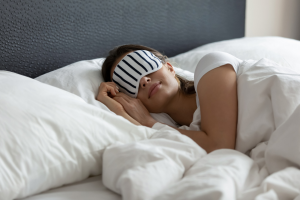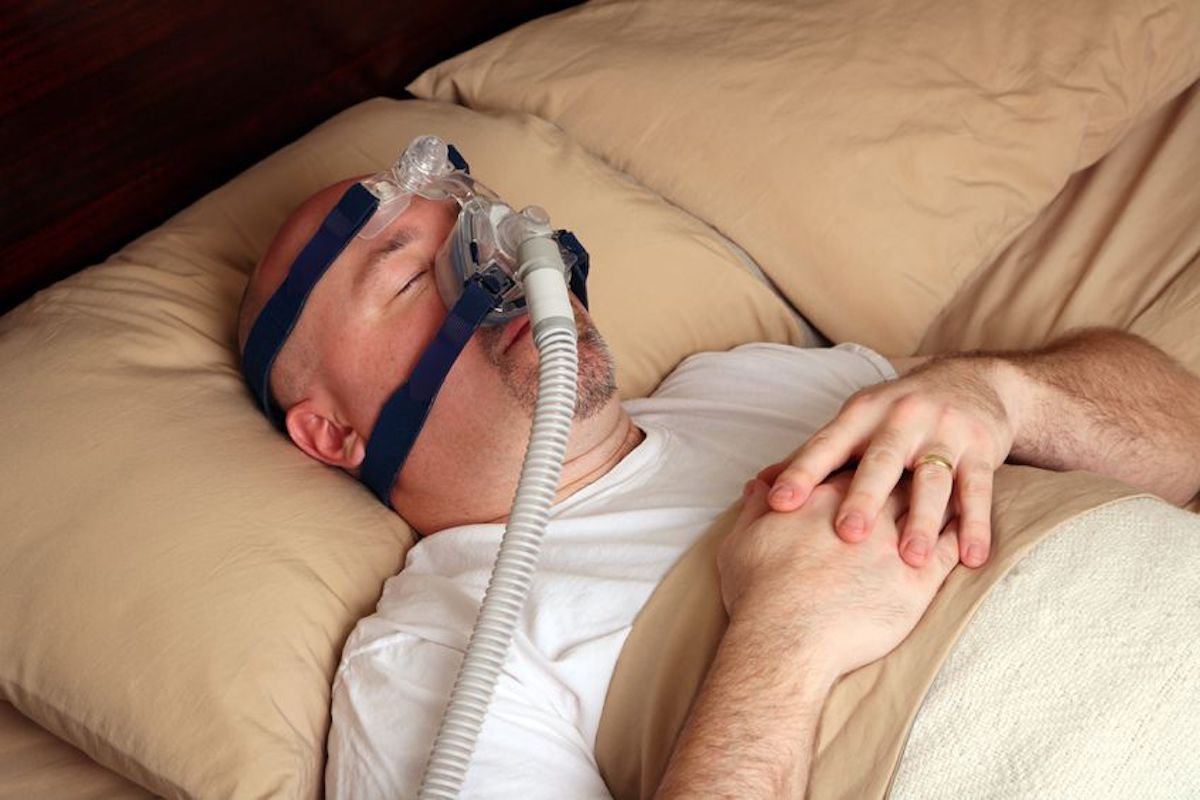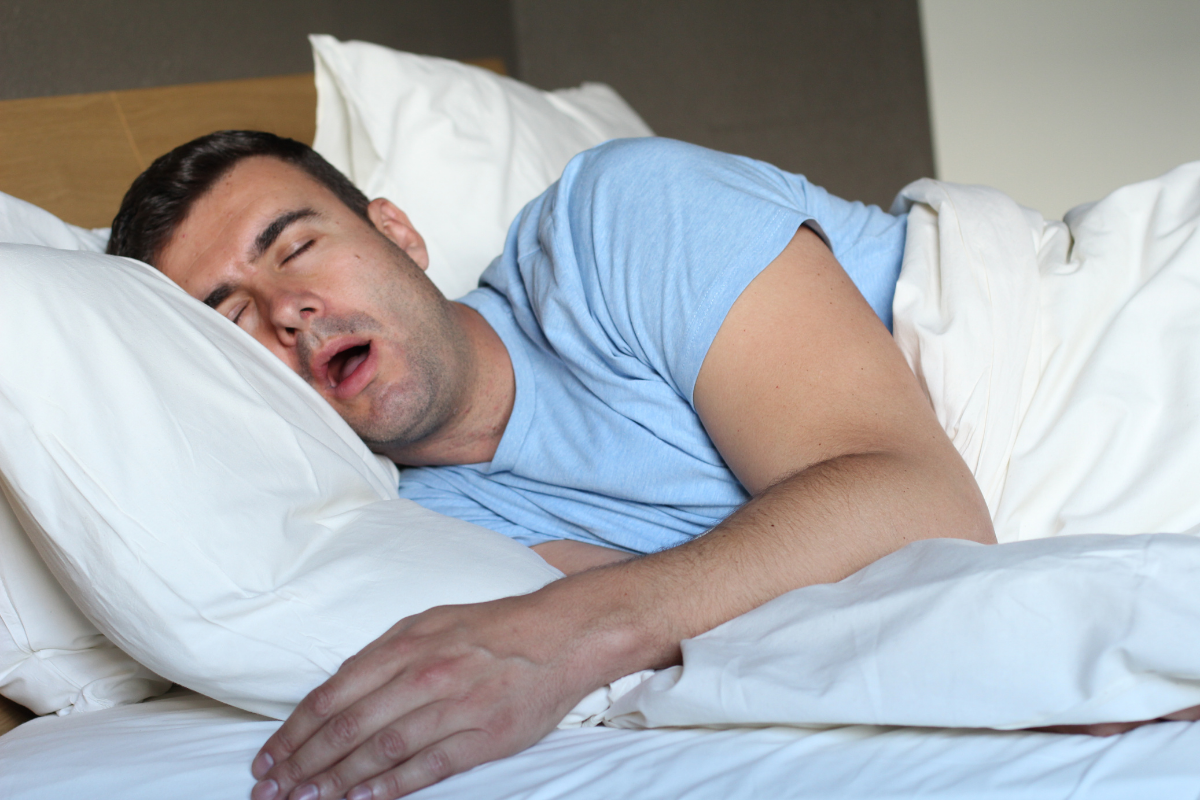Along with diet and exercise, sleep plays an important role in overall health. Sleep loss can lead to many health issues and is often overlooked as a major factor in illness, both physical and mental. Knowing more about sleep deprivation and what to do to maintain healthy sleep helps you check all the boxes for leading a healthy lifestyle.
 What Is Sleep Deprivation?
What Is Sleep Deprivation?
Sleep deprivation is a general term to describe a state caused by inadequate quantity or quality of sleep, including voluntary or involuntary sleeplessness and circadian rhythm sleep disorders. There are many reasons why someone can become sleep deprived. Learn more about sleep deprivation in this blog.
Understanding Sleep and Health
Even one night of poor sleep can have profound effects throughout your body, contributing to a whole host of medical problems. Some of the effects can be reversed; others can’t. Here are some of the things that can happen to your body when you don’t get enough sleep over the long term.
- Impacts to the brain and nervous system
- Cardiovascular diseases
- Hormonal imbalances
- Mental health issues such as anxiety and depression
How Much Sleep Do You Need? – Quality over Quantity
Sleep needs to change as we get older. Newborns and infants require more sleep. As we grow into adulthood and beyond, we require fewer hours of sleep to stay healthy.
| Age group | Recommended hours of sleep per night |
| 0-3 months | 14-17 hours |
| 4-12 months | 12-16 hours |
| 1-2 years | 11-14 hours |
| 3-5 years | 10-13 hours |
| 6-12 years | 9-12 hours |
| 13-18 years | 8-10 hours |
| 18-60 years | 7 hours or more |
| 61-64 years | 7-9 hours |
| 65 years and older | 7-8 hours |
Tips to Improve Healthy Sleep
Routine
One of the best ways to maintain healthy sleep every night is to keep a consistent sleep schedule. Erratic schedules confuse the body. Routine schedules help your body adapt to sleep patterns.
Diet
A healthy sleep diet includes avoiding any foods that may keep you up at night, such as spicy foods. Also, when you eat is important. Try to avoid eating large meals close to bedtime so digestion doesn’t interfere with sleep.
Exercise
Regular exercise helps use up excess energy that might keep you awake at night. Regular exercise also contributes to an overall healthy lifestyle that helps your body adjust to periods of activity and rest.
Some Sleep Disorders That Disrupt Healthy Sleep
Sleep Apnea
Sleep apnea is a potentially serious sleep disorder in which breathing repeatedly stops and starts. If you snore loudly and feel tired even after a full night’s sleep, you might have sleep apnea.
Insomnia
Insomnia is a sleep disorder in which you have trouble falling and/or staying asleep. The condition can be short-term (acute) or can last a long time (chronic). It may also come and go.
Sleep Paralysis
Sleep paralysis is a feeling of being conscious but unable to move. It occurs when a person passes between stages of wakefulness and sleep. During these transitions, you may be unable to move or speak for a few seconds up to a few minutes.
Some Sleep and Health Issues
Diabetes and Sleep
Varying patterns of high blood sugar and low blood sugar due to diabetes can lead to insomnia at night. Patients with diabetes may struggle with normal sleep at night and feel sluggish during the day.
Heart and Sleep
Complications from heart issues can affect sleep. Chest pains or discomfort in the chest can keep heart patients awake at night.
Immunity and Sleep
Poor sleep can also compromise the immune system. Sleep deprivation over time may lead to more frequent illnesses such as the cold and flu.
Mental Health and Sleep
Sleep deprivation can also affect how you feel emotionally. Sleep loss can lead to feelings of depression and anxiety, which may be treated with medications when sleep loss is really the cause.
Learn more about sleep and health issues in this blog post.
How to Diagnose Sleep Disorders
Treating any sleep disorder begins with the proper diagnosis. There are two common ways to detect and diagnose sleep disorders.
- Polysomnography or an in-lab test requires you to spend the night in a sleep lab monitored by equipment that evaluates your sleep.
- Home sleep tests can be conducted in the comfort of your own home. Home sleep tests are mailed to you. You can take the test at your own convenience, mail the test back for evaluation and speak to a sleep doctor online to determine the final results.
While in-lab tests may be required for some more complex sleep disorders, sleep apnea can be diagnosed using a home test. In-lab tests are inconvenient and require you to schedule the test time, visit a lab and spend the night in unfamiliar surroundings-which can affect final results.
Home tests are easier and more convenient and allow you to take the test in the most familiar surroundings of all—your own bedroom.
How Can I Diagnose Sleep Apnea at Home?
At Sleep Care Online, you can get a simple and convenient home sleep test to determine if you have sleep apnea. Here is how it works:
- With the Complete Care Package, schedule a 10-minute telehealth visit with a healthcare provider to discuss your symptoms, upcoming sleep study, test results, and treatment options.
- A multi-night, disposable home sleep apnea test is mailed to your home to be completed at your convenience.
- A physician analyzes the sleep data and provides a prescription if needed.
- Schedule an optional follow-up appointment (additional fee applies).
- We connect you to sleep experts who can offer customized sleep therapy options, assistance in equipment purchase, and initial set-up.
Ready to get started? Purchase the Complete Care Package today. As always, our customer service team is here to help. Give us a call at 866.465.4478.





